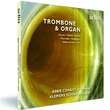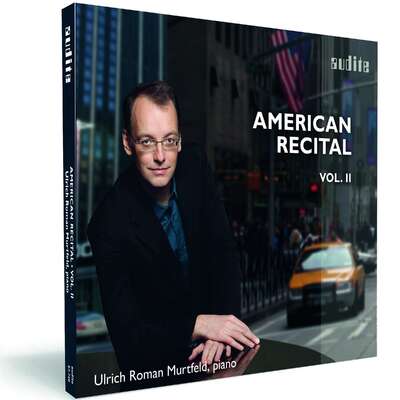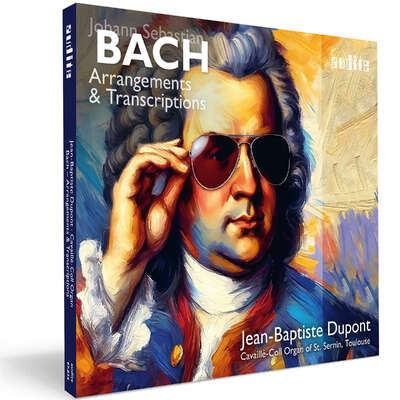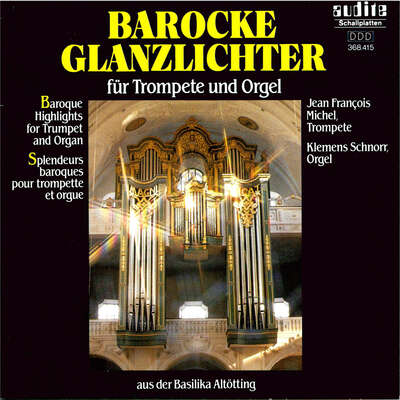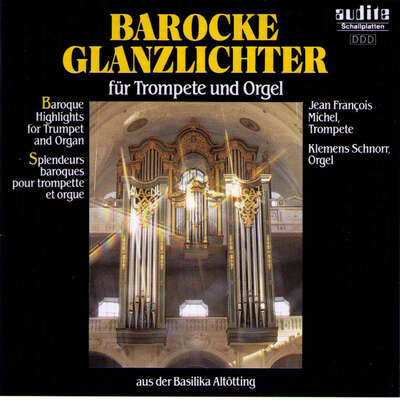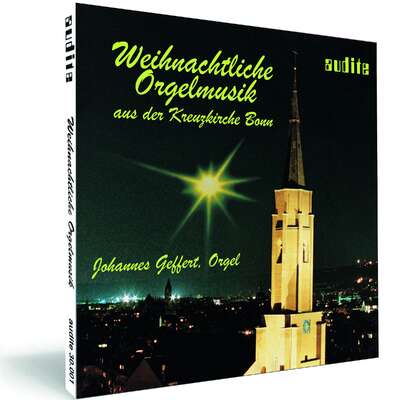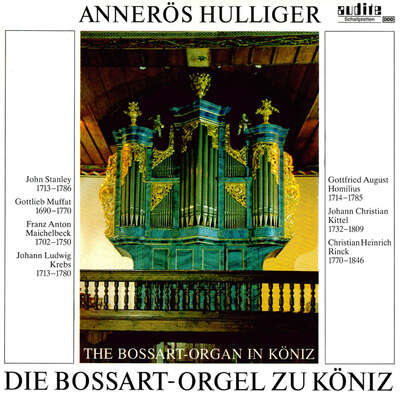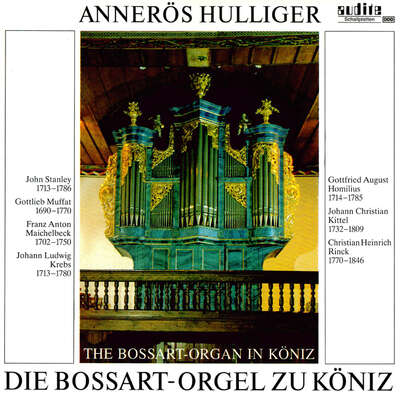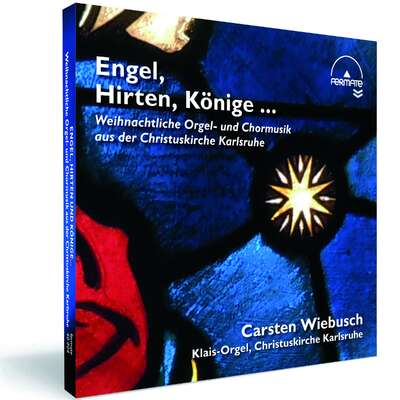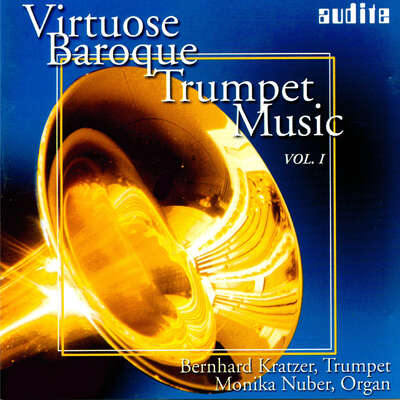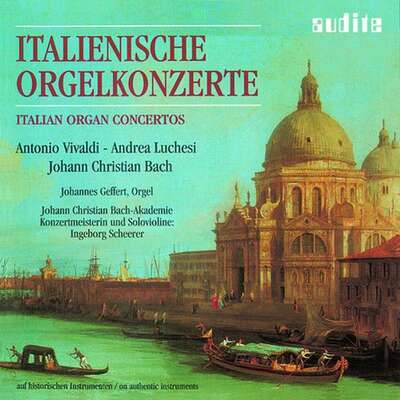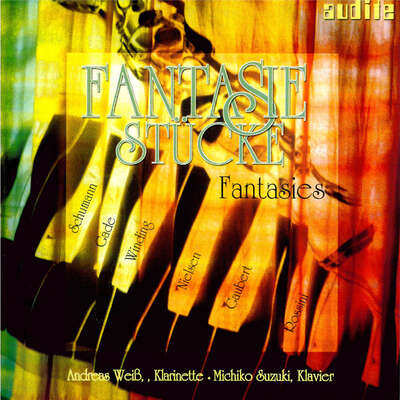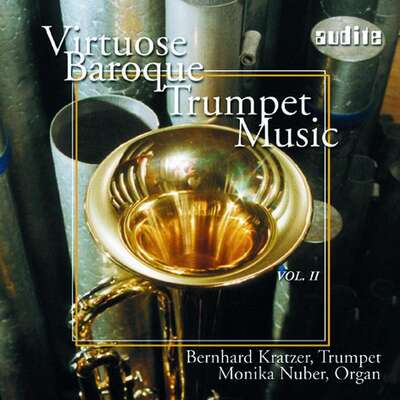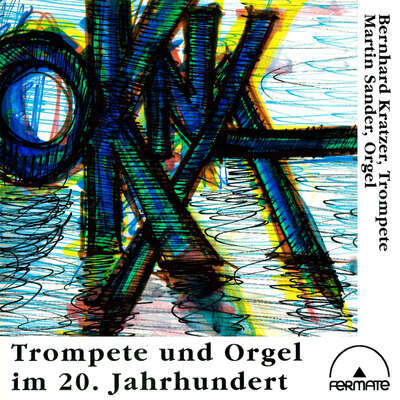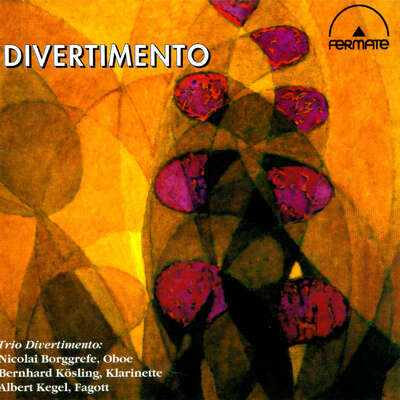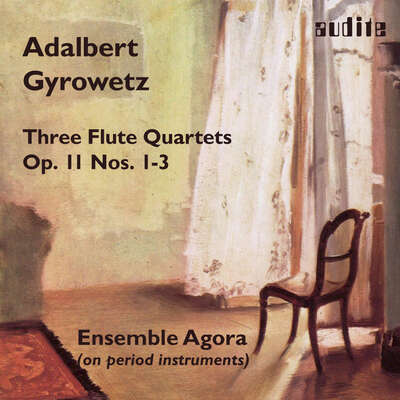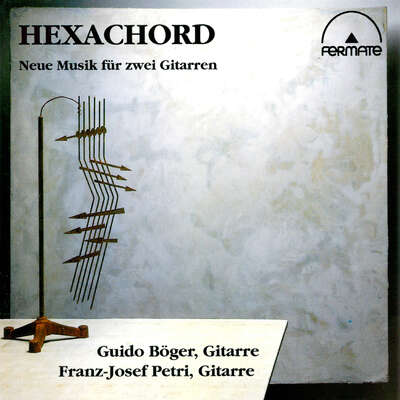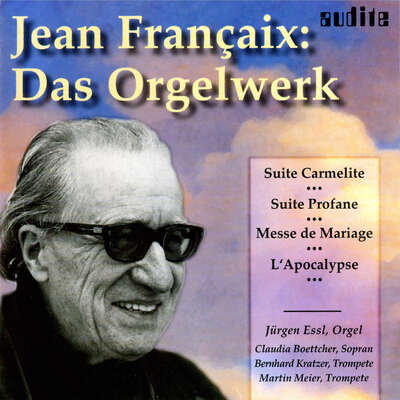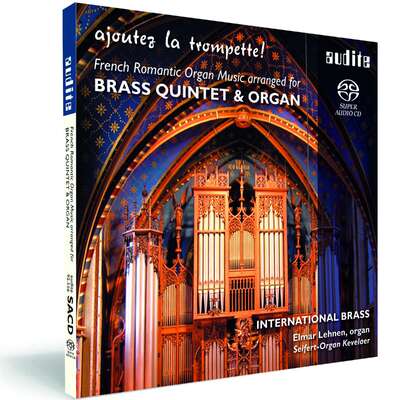
Trombone and organ through the centuries: 400 years of stylistic variety from baroque to modern times.more
"Mit ausgeprägtem Klangsinn führt Abbie Conant durch vier Jahrhunderte Posaunenliteratur...Perfekte Virtuosität, in der die Schwergewichtigkeit der modernen Posaune vollkommen aufgehoben ist." (Neue Züricher Zeitung)
Details
| Trombone & Organ | |
| article number: | 97.410 |
|---|---|
| EAN barcode: | 4022143974105 |
| price group: | BCH |
| release date: | 27. August 2010 |
| total time: | 48 min. |
Informationen
The soloist of the reissue Abbie Conant is one of the leading trombonists of our times. Her choice of repertoire for this CD includes 400 years of stylistic variety from baroque to modern times. In her successful interpretations she presents the trombone as a diverse solo-instrument. Already in the baroque period the trombone was a popular melody instrument. It was widely used for the performance of Sonatas and Canzonas following the baroque practise to interchange the melody instruments flexibly. The diverse sound of the trombone prompted also composers of later periods to write works for this solo instrument consistently. The works by Cesare, Händel, Marcello, Krebs, Guilmant, Helmschrott and Ives present the trombone as a solo instrument through the centuries.
In 1980 Abbie Conant won the solo chair of the Munich Philharmonic Orchestra under Sergiu Celibidache. The story of her long lasting struggle for equal treatment and pay as her male colleagues in the Munich Philharmonic appeared in the press as well as on TV and raised her reputation additionally. Abbie Conant performs internationally as a concerto soloist, recitalist, improviser and performance artist. Since 1992 Abbie Conant is professor at the Staatliche Hochschule für Musik in Trossingen / Germany.
Klemens Schnorr is professor at the Staatliche Hochschule für Musik in Freiburg / Germany, cathedral organist at the Minster and guest lecturer at the Italian Organ Academy in Pistoia. He won the international organ competitions in Avila, Bologna, Innsbruck, Munich (ARD Competition) and Nijmwegen. Before accepting his post in Freiburg, he was a church musician, lecturer and organ specialist in Würzburg and Munich. Alongside his teaching and performing activities, Klemens Schnorr is also an author and editor.
Reviews
Clarino | Jg. 9, Nr. 4/2011 | bsa | April 1, 2011
Abbie Conant & Klemens Schnorr
Trombone & Organ
Eine unglaublich gesangliche Posaune spielt Abbie Conant, die TrossingerMehr lesen
Fono Forum | Februar 2011 | Holger Arnold | February 1, 2011 Erfolgsgeschichten
Hinter dieser Wiederveröffentlichung aus dem Jahre 1987 stehen zwei Erfolgsgeschichten. Zum einen die des in Stuttgart gegründeten Labels Audite,Mehr lesen
Als Conant diesen 1993 schließlich durch alle Instanzen gewonnen hatte, folgte sie der Berufung als Posaunenprofessorin an die Musikhochschule Trossingen. Auf der vorliegenden CD ist eine Ausnahmesolistin zu hören, die ihren einstigen Widersachern noch heute die Schamröte ins Gesicht treiben muss. Brillante Tongebung in allen dynamischen Schattierungen, gekoppelt mit perfekter Technik, traumwandlerischer Musikalität und einer gehörigen Portion Spielwitz veredeln sowohl die Barockpiècen von Giovanni Marino Cesare, Georg Friedrich Händel, Johann Ludwig Krebs als auch Alexandre Guilmants spätromantisches „Morceau Symphonique“, Robert M. Helmschrotts tetrachordische „Sonata di chiesa 1“ und die Bearbeitung von Charles Ives’ fast satirischen „Variations On America“. Da auch der Orgelpartner Klemens Schnorr und die 1987er-Aufnahmetechnik (Labelgründer Friedrich Mauermann) keine Wünsche offenlassen, steht der jeweiligen Höchstbewertung nichts im Wege.
Choir & Organ | January / February 2011 | Rupert Gough | January 1, 2011
For this showcase of music for trombone and organ, Conant and Schnorr follow the formula of beginning with the old and finishing with the (relatively)Mehr lesen
Glaube + Heimat - Mitteldeutsche Kirchenzeitung | Nr. 50 - 12. Dezember 2010 | Michael Klein | December 12, 2010 Ungewohnte Klangkombinationen, seltenes Repertoire
Abbie Conant (Posaune) und Klemens Schnorr (Orgel) stoßen mit ihrer CDMehr lesen
L'éducation musicale | n° 44 - Décembre 2010 | Francis Gérimont | December 1, 2010
Si l’opéra-rock fait désormais florès, rares sont les opéras-jazz. Mehr lesen
Wochen-Kurier | Mittwoch, 22. September 2010 - Nr. 38 | Michael Karrass | September 22, 2010
Die Solistin der vorliegenden Wiederveröffentlichung Abbie Conant ist eineMehr lesen
American Record Guide | 4/2002 | Roger Hecht | July 1, 2002
Abbie Conant is known (perhaps unfairly) as a cause celebre for woman brass players. She won the principal trombone job in the Munich Philharmonic inMehr lesen
Conant is a fine player on this 1987 recording. Her technique is not flashy, but it is polished, and her legato is smooth and clean. She has a dark, Teutonic sound whose emphasis on lower overtones gives it a warm upper register and a slight burr and spread in the middle. Its contour is more flat than round and focussed, but it nicely complements her earthy, human approach to the instrument. I suspect Barry Kilpatrick (July/Aug 1995) likes her sound better than I do, but I essentially agree that "her golden tone, combination of lyricism and power, and heartfelt expressiveness--is present in everything she plays".
These qualities are especially present in the romantic works, and it's great to have them available in such fine performances. The Guilmant is a compact, rewarding bit of Franckian romanticism whose sharp structural changes Conant handles effectively while making the piece soar. The darker, more abstract Robert Helmschrott work varies from elegiac to declamatory to jubilantly technical. Conant introduced it in 1984, and its mysterious, yet heroic quality suits her well. Schnorr's Ives arrangement assigns melodic lines to the trombone, effectively adding the instrument as a stop to the original organ scoring. It too fits Conant's style. The Giovanni Cesare is said to be the first solo work for trombone (c 1621), and Conant's broad, extroverted approach is just right.
I am not quite as fond of her Handel and Marcello. The playing is solid and fluid, especially in the high register, and the ornamentation (mostly trills) is well executed and judicious. I just prefer a rounder, sleeker tone and a sweeter, more baroque style. I would like more lyrical shaping of the rhythmic figures in the Allegros and in the Larghetto of the Handel. There is also too much smoothing of the dotted rhythms in that Larghetto and a few crass measures in the first Allegro of the Marcello. Despite these quibbles, I enjoyed both performances. The only one I don't like is the Johann Krebs, where the trombone supplies a tenor cantus firmus to a vigorous chorale prelude. This calls for a round, noble sound, particularly given Schnorr's (fittingly) dynamic playing. Conant's flatish tone makes the part seem vestigial.
The recorded sound is good, though we are reminded that church acoustics favor organs at the expense of other solo instruments. The soloist is slightly distant to the point where Schnorr's fine organ playing sometimes threatens to push even the powerful trombone of Abbie Conant aside. Neither this nor the other minor problems detract seriously from a fine recital.
American Record Guide | 01.03.2011 | Barry Kilpatrick
The Garhammer organ…sounds rich and magnificent…<br /> <br /> To read the complete review, please visit American Record Guide online.Mehr lesen
To read the complete review, please visit American Record Guide online.
To read the complete review, please visit American Record Guide online.
